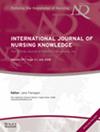Nursing outcome “Knowledge: Wound management” for surgical incision wound care: Update, translate, and culturally adapt
Abstract
Purpose
This study has two objectives: (1) to identify the indicators of the nursing outcome “Knowledge: Wound management (3209)” related to the evaluation of knowledge about the care of surgical wounds; (2) to translate and culturally adapt the nursing outcome “Knowledge: Wound management (3209)” into Brazilian Portuguese and Colombian Spanish.
Methods
This is a methodological study with two steps. Initially, a scoping review was conducted based on the methodology of the Joanna Briggs Institute. Subsequently, the translation and cultural adaptation of the outcome were performed by adapting Beaton's recommendations, which included the label, definition, indicators, and measurement scale.
Findings
The review identified 31 indicators to evaluate knowledge about surgical wound care. Of these, 16 are described in the original outcome, and 15 new indicators are proposed to be included in the classification. Following this, the label, definition, indicators, and outcome measurement scale were reviewed, translated, and adapted with appropriate terminology for the cultural contexts of Brazil and Colombia.
Conclusion
The outcome “Knowledge: Wound management (3209)” for evaluating the knowledge of surgical wounds consists of 31 indicators, all supported by scientific literature. The translated and adapted versions into Brazilian Portuguese and Colombian Spanish were found to be equivalent to the original. It is inferred that the identified indicators and the translated versions of the outcome will provide nursing professionals with an accurate assessment of knowledge about surgical incision wound care in daily practice.
Implications for nursing practice
This study reviews the scientific literature on the outcome “Knowledge: Wound management (3209),” facilitating the comprehensive measurement of specific knowledge about the care of surgical wounds in practice, education, or research. Additionally, it makes available the translated and adapted versions of the outcome in Brazilian Portuguese and Colombian Spanish.
Propósito
Este estudio tiene dos objetivos: (1) Identificar los indicadores del resultado de enfermería “Knowledge: Wound Management (3209)” relacionados a la evaluación del conocimiento sobre el cuidado de las heridas quirúrgica; (2) traducir y adaptar culturalmente el resultado de enfermería “Knowledge: Wound Management (3209)” al portugués de Brasil y al español de Colombia.
Métodos
Estudio metodológico de dos pasos. Inicialmente, fue realizada una revisión de alcance orientados en la metodología de la Joanna Briggs Institute. Posteriormente, se realizó la traducción y adaptación cultural del resultado adaptando las recomendaciones de Beaton e incluyó la etiqueta, definición, indicadores y escala de medición.
Hallazgos
En la revisión fueron identificados 31 indicadores para evaluar el conocimiento sobre el cuidado de las heridas quirúrgicas. De los 31 indicadores, 16 son descritos en el resultado y 15 nuevos indicadores propuestos para ser incluidos en la clasificación. A continuación, la etiqueta, definición, indicadores y escala de medición del resultado fueron revisados, traducidas y adaptados con la terminología adecuada para los entornos culturales de Brasil y Colombia.
Conclusión
El resultado “Knowledge: Wound Management (3209)” para el cuidado de las heridas quirúrgicas está compuesto por 31 indicadores todos sustentados con la literatura científica. Las versiones traducidas y adaptadas al portugués de Brasil y al español de Colombia del resultado fueron equivalentes al original. Se infiere que los indicadores identificados y las versiones traducidas del resultado le proporcionaran al profesional de enfermería una evaluación precisa del conocimiento sobre el cuidado de las heridas quirúrgicas en la práctica diaria.
Implicaciones para la práctica de enfermería
Este estudio revisa la literatura científica del resultado “Knowledge: Wound Management (3209)” favoreciendo la medición integral del conocimiento específico sobre el cuidado de las heridas quirúrgicas en la práctica, educación o investigación. Además, pone a disposición la versión traducida y adaptada del resultado en portugués de Brasil y en español de Colombia.

 求助内容:
求助内容: 应助结果提醒方式:
应助结果提醒方式:


